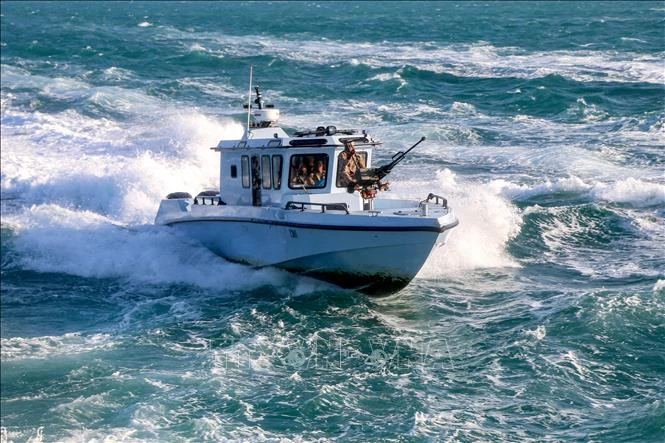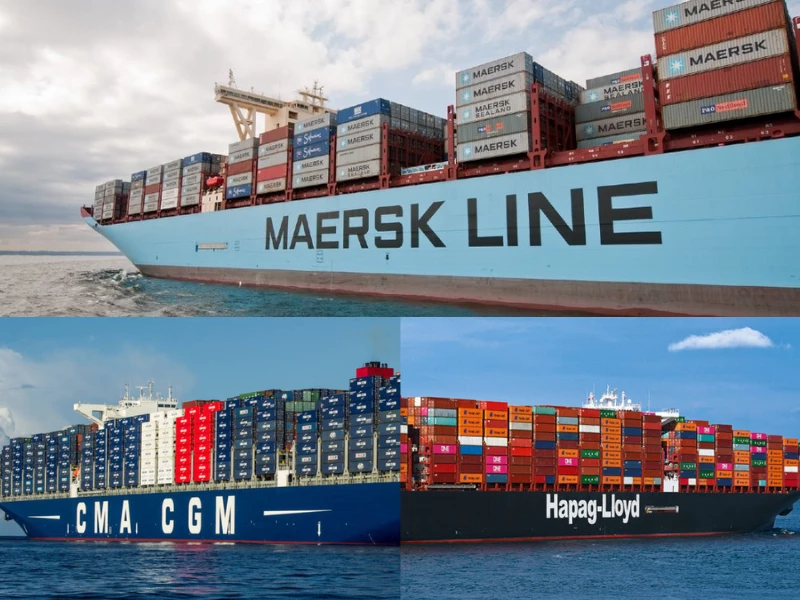


Tensions in the Red Sea are escalating sharply, making shipping companies cautious
The Red Sea route connecting Asia to Europe via the Suez Canal and the Mediterranean is considered the artery of international trade. The Suez Canal handles about 12% of global trade and ships from Asia access the canal through the 30km wide Bab-el-Mandeb strait. About half of the cargo transported through the canal is container ships. This route is also very important for oil shipments from the Persian Gulf to Europe and North America.
Why are shipping companies avoiding the Red Sea region?
The Houthis have repeatedly targeted vessels on the crucial shipping line in the Red Sea with attacks that the forces claim are aimed at supporting the Palestinians in Gaza, where Israel is fighting Hamas, according to AFP. The Maersk Hangzhou container ship also became the target of two anti-ship cruise missiles launched from Yemen. One of the missiles hit the Maersk Hangzhou, so the US Navy shot down another newly launched missile from Yemen. The Maersk Hangzhou was attacked for the second time within 24 hours while passing through the Red Sea.
In a statement, the US Central Command (CENTCOM) said that after Houthi forces fired on some US helicopters, the helicopters "returned fire in self-defense" and sank 3 of 4 small boats near a merchant vessel, killing the crews, according to AFP. "The fourth boat fled the area," CENTCOM added.

Shipping companies collectively impose surcharges, raising freight rates
On December 15th, Hapag-Lloyd, Germany's shipping company, announced the temporary suspension of all voyages through the Red Sea due to fears of attacks. On the same day, Maersk, Denmark's shipping company, announced that it would temporarily suspend all container cargo transportation operations through the Red Sea until further notice.
On December 31, 2023, Maersk temporarily suspended all voyages on the Red Sea for 48 hours following efforts by the Yemen-based Houthi militia to board the Maersk Hangzhou ship. Maersk said it is conducting an investigation into the incident and will continue to suspend all cargo transportation operations in the area while further assessing the constantly evolving situation. If most meaningful to customers, ships will be rerouted and continue their voyage around the Cape of Good Hope. Maersk has diverted over 30 container ships going through Suez via the Red Sea, while 17 other voyages have been temporarily suspended.
Shipping company Hapag-Lloyd said its ships will continue to divert away from the Red Sea - instead going around the southern tip of Africa - until at least January 9th, when they will decide whether to reroute their ships again or not.
According to ING Bank in the Netherlands, rerouting shipments around the Cape of Good Hope adds around 3,000-3,500 nautical miles (6,000km) and an extra 10 days to the voyage from Asia to Europe. The extended transportation time will have a ripple effect on cargo handling times at ports in the UK and major centers in Europe like Rotterdam, Antwerp or Hamburg.

Due to the increase in transportation distances, major shipping lines such as Maersk, Hapag-Lloyd, CMA CGM... have announced that they will charge additional fees for having to change routes of Asia-Europe routes, avoiding the Suez Canal and the Red Sea region. Specifically, world's leading container shipping company CMA CGM announced additional fees ranging from US$325-500 per 20-foot container on routes from Northern Europe to Asia and from Asia to the Mediterranean region. This increases costs for businesses, causing great difficulties in import and export activities amid the already unstable economic situation, which is becoming even more unstable.


